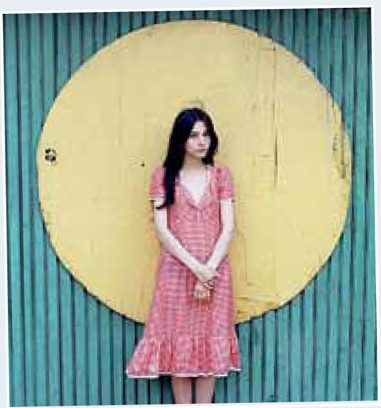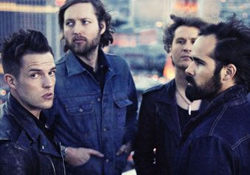HUNGARIAN FILM REVOLUTION
From May 16 to 21, the Kyiv film theatre will host the Fourth Annual Festival of Contemporary Hungarian Cinema. The programme will include five romantic comedies. The selection may surprise the usual film festival audience , since it is light and entertaining. However, that is contemporary Hungarian cinema today. Earlier, it was long known as heavy, intellectual and serious. This led to stagnation in the 1980-1990s, as the Hungarian audience stopped watching domestic films. The switch to light genres has saved the Hungarian film industry. This does not mean that cinema art has disappeared altogether in Hungary – the Silver Bear from the Berlin International Film Festival for Bence Fliegauf’s Just the Wind last year proves the opposite. So does Berlinale’s Gran Prix for The Turin Horse by Béla Tarr in 2011. Yet, the epic films Hungary has long been known for, are a thing of the past.
READ ALSO: Silent Dialogs With Film

Most middle-aged Ukrainians remember Hungarian films from the 1960-1980s, mostly by István Szabó and Miklós Jancsó. In the late 1980s, as the premonition of the USSR collapse was in the air, the audience saw Andrew Vajna, a smart and adventurous Hungarian-born Hollywood producer who worked on blockbusters, such as Rambo and Terminator, and the best intellectual movies, such as Oliver Stone’s Nixon and Alan Parker’s Angel Heart. In 2011, the Hungarian government invited Vajna to chair the national film commission. His responsibility was to essentially develop new cinema in the country. The first thing he did was to establish a system of public grants for film production, backed with the support of film distribution abroad – France and Poland have similar systems. This brought Hungarian cinema out of the crisis, caused partly by corruption in the domestic cinema budget. In 2012, however, a scandal broke out as Béla Tarr accused Vajna of designing the film system to suit his interests. No matter what, the Hollywood producer would never have been able to implement crucial transformations without government support: in 2012, legislature passed a new law to channel 80% of national lottery revenues to the film industry. Now, Hungary produces up to thirty feature films annually, plus short and animated films, with an annual budget of up to EUR 535,000. Most films at the Fourth Annual Festival of Contemporary Hungarian Cinema had private investor funding before Vajna’s changes.
READ ALSO: Poetry Films Go Digital
A TYPICAL FILM AT THE FESTIVAL
Nine and a Half Dates, 2008
Directed by Tamás Sas

The romantic comedy is based on two popular stories. Stuck with writer’s block, a handsome macho author is trying to write a book on what single and lonely women want. This is accompanied by all sorts of clichés from similar films. Still, the director managed to offer an interesting mix to the average audience relaxing after work.
Visions Festival

The debut independent international festival of visual arts will kick off on May 24 in Kyiv and last through July 2. “The programme will prepare the audience for a new level of perceiving and understanding art through the direct experience of facing the unknown,” Anna Haidai of the organization committee shares. “An important aspect of this festival is that it is the cause of a handful of enthusiasts who do this with zero support from the government, hence no censorship.” Visual Archive, the umbrella theme, covers photography, video art and installations, experimental films and media performances. The festival will present 20 photo projects from Ukraine, Germany, Canada, the Czech Republic, Lithuania, Georgia and Russia. Exhibitions and performances will take place at Lavra, Kamera, ArtPrychal, YA Gallery, Kvartyra 57 and Minus 4 galleries, as well as the Kyiv Fortress Museum, Kavaleridze Workshop Museum and Dream Museum. The festival also includes three competitions: The Space of Memories for site-specific installations, the City of the Future for photography and Memory for multimedia projects. Young photographers will have the opportunity to meet renowned artists, including Oleksandr Kadnikov, Oleksandr Liapin, Kostiantyn Smolianinov and others.
READ ALSO: Ukrainian Cinema. Making It Real
16– 18 May
NextSound
Prostir Club, Architects’ House, Dovzhenko Film Studio
(5A prov. Cheslava Byelinskoho; 7, vul. Borysa Hrinchenka; 44, prosp. Peremohy)

The NextSound international festival of advanced music and digital arts will present a selection of the most daring modern experiments in audio and video. One of the main conceptual principles of the project is the creative synthesis of different art forms for the purpose of creating new artistic technologies. The event will also feature the premier performances of world-renowned artists. This year’s participants include Radian (Austria), Kammerflimmer Kollektief (Germany), Tape (Sweden) and many others.
23-26 May
Wiz-Art 2013
Art Palace
(17, vul. Kopernyka, Lviv)

Towards the end of May, Lviv traditionally sees the start of the short film festival. The festival’s programme covers more than 100 of the latest short films. The competition programme will screen short films from all over the world. The reels that will be screened in the non-competition programme, are equally interesting. Wiz-Art 2012 was memorable for the Cry but Film slogan of the non-competition programme. This year’s surprises, just like the names of the participating films, are currently being kept secret by the organizers.
28 May – 4 June
Days of Polish Cinema in Ukraine
Kino Palace Cinema
(1, vul. Instytutska, Kyiv)
For the eighth consecutive year, the project presents Ukrainian film buffs with the best films of modern Polish cinema. This year’s programme is made up of eight films of different genres and subject, which will be shown in 6 cities of Ukraine. The festival will open with a moving family tragi-comedy called My Father’s Bike by Piotr Trzaskalski, the winner of numerous international awards and prizes. Viewers will also see the melodrama Imagine! by Andrzej Jakimowski and the drama In Darkness by Agnieszka Holland. The festival will close with the historical drama Syberiada Polska by Janusz Zaorski.
30 May, 7 p.m.
Joe Cocker
Ukrayina Palace
(103, vul. Velyka Vasylkivska, Kyiv)

The legendary Joe Cocker will visit Ukraine as part of his world tour, Fire It Up. The British musician will present his new 2012 album to every fan. The album includes soulful blues ballads and new hits filled with energy and rhythm. Fans hope that Joe Cocker will also perform his most famous compositions: My Father’s Son, Unchain My Heart, You Can Leave Your Hat On and others. This music cannot be boring – with his performance, Joe Cocker makes each song special.
READ ALSO: A New Music Generation
2 June, 7 p.m.
The Killers
Palats Sportu
(1, pl. Sportyvna, Kyiv)

Headliners at major world festivals, some of the most popular musicians of their time and untiring experimenters, The Killers will give a long-awaited concert in Kyiv. The power and fullness of sound is one of the main characteristics of their music. Since it came together, the American indie-rock band has released foud studio albums, which were snapped up at an amazing rate. The last album Battle Born was released in 2012. Songs from this album will be included in the concert in Ukraine.
READ ALSO: European Melodies: a Look at Managing Classical Music
Until 9 June
Virtuosos
Lviv Philharmonic
(7, vul. Tchaikovskoho, Lviv)

Ukraine’s art capital is hosting its annual International Music Festival for the 32nd time. Those who appreciate good sophisticated music have a unique opportunity to enjoy masterpieces of world classical music, performed by the best musicians from all over the world. The works of the most renowned composers can be heard at the festival. Тhe festival opened with music in honour of the Italian composer Guiseppe Verdi, and its finale will honour the 200th birthday of the German composer Richard Wagner.

